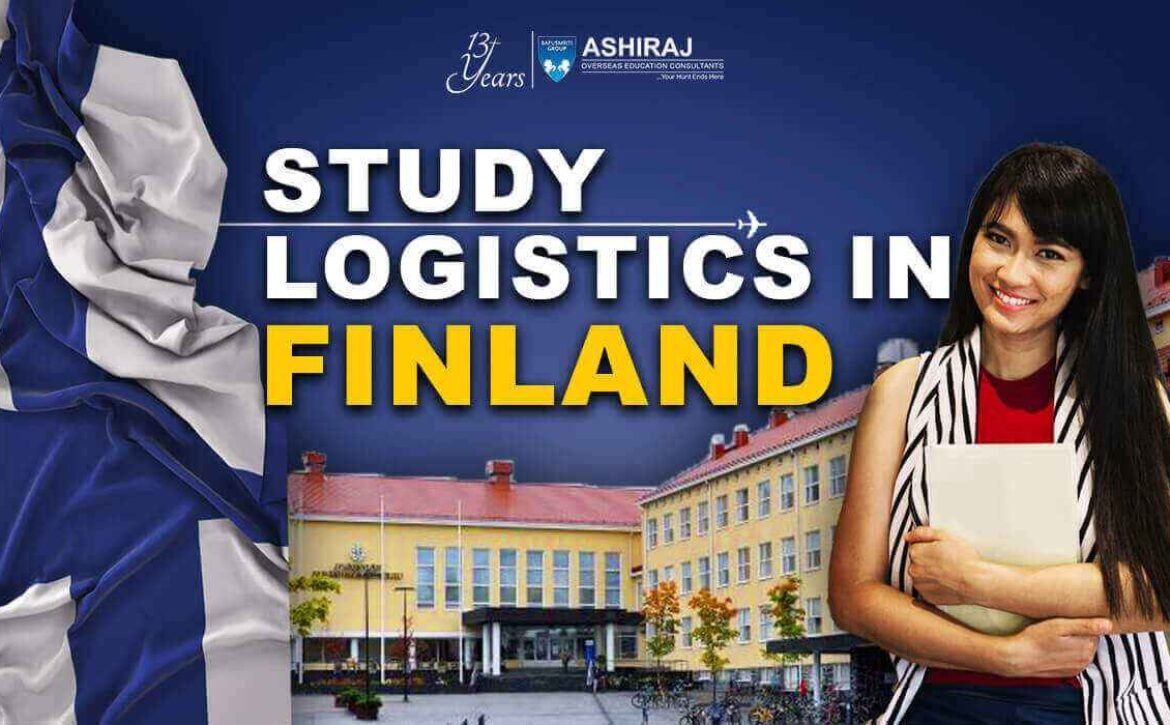
Logistics in Finland
Logistics in Finland plays a pivotal role in the country’s efficient supply chain management and economic success. Nestled in Northern Europe, Finland boasts a strategic geographical location that positions it as a key logistics hub connecting Scandinavia, Russia, and the rest of Europe. The country’s well-developed infrastructure, including modern ports, efficient rail networks, and an extensive road system, contributes to the seamless movement of goods within and beyond its borders. With a strong emphasis on technology and innovation, Finland’s logistics sector leverages cutting-edge solutions to optimize transportation, warehousing, and distribution processes.
Logistics in Finland is characterized by a commitment to sustainability and eco-friendly practices. The Finnish logistics industry places a high priority on minimizing its environmental footprint, with initiatives focused on energy efficiency, green transportation, and waste reduction. This dedication aligns with Finland’s broader reputation for environmental consciousness and reinforces its position as a responsible global player in the logistics arena. In navigating the intricate web of global trade, Logistics in Finland stands as a testament to the nation’s dedication to efficiency, sustainability, and technological advancement.
Why to Study Logistics in Finland?
- Global Connectivity: Finland’s strategic location makes it a gateway to Europe, Russia, and Scandinavia, providing students with exposure to diverse logistics challenges and opportunities.
- Cutting-Edge Technology: The logistics sector in Finland embraces innovation, offering students the chance to learn and apply the latest technologies, from smart logistics solutions to advanced supply chain management systems.
- Sustainable Practices: With a strong commitment to eco-friendly operations, studying logistics in Finland allows students to engage with sustainable practices. This emphasis aligns with the global trend towards environmentally conscious logistics.
- Industry Collaboration: Finnish universities often foster strong ties with the logistics industry, providing students with valuable insights, internships, and real-world experiences that enhance their learning and employability.
- Quality Education: Finland is renowned for its high-quality education system. Logistics programs in Finnish universities are designed to equip students with practical skills, theoretical knowledge, and a global perspective, preparing them for successful careers in the field.
- English as the Language of Instruction: Many logistics programs in Finland are offered in English, making it accessible to international students. This linguistic inclusivity enhances the overall learning experience for those seeking a global perspective in logistics education.
In conclusion, studying logistics in Finland offers a unique blend of global connectivity, technological innovation, sustainability, industry collaboration, quality education, and linguistic accessibility, making it an ideal choice for aspiring logistics professionals.
Top Universities to Study Logistics in Finland
Rank | University | QS World University Ranking 2023 | Type of University | Average Annual Fees | Programs Offered |
1 | University of Helsinki | 88 | Public | €13,000 – €18,000 | Logistics and Supply Chain Management, International Business Logistics |
2 | Aalto University | 201-250 | Public | €15,000 – €20,000 | Master’s in Logistics and Transport Management |
3 | University of Turku | 301-350 | Public | €10,000 – €15,000 | Logistics, Supply Chain Management, and Maritime Management |
4 | Lappeenranta-Lahti University | 401-450 | Public | €12,000 – €16,000 | Supply Chain Management |
5 | Tampere University | 501-550 | Public | €13,000 – €17,000 | Master’s in Industrial Engineering and Management, Major in Logistics |
When considering pursuing logistics education in Finland, it’s essential to explore the top universities offering specialized programs. The University of Helsinki, ranked 88th in the QS World University Rankings 2023, provides programs in Logistics and Supply Chain Management. Aalto University, positioned in the 201-250 range, offers a Master’s in Logistics and Transport Management with an annual fee ranging from €15,000 to €20,000. The University of Turku, ranked 301-350, features programs in Logistics, Supply Chain Management, and Maritime Management, while Lappeenranta-Lahti University, positioned at 401-450, focuses on Supply Chain Management. Tampere University, ranked 501-550, offers a Master’s in Industrial Engineering and Management with a major in Logistics. The average annual fees for these programs range from €10,000 to €20,000, providing students with diverse options for quality logistics education in Finland.
Course Curriculum for Logistics in Finland
- Core Logistics Principles: The curriculum emphasizes fundamental logistics principles, covering topics such as inventory management, transportation, and procurement, providing students with a solid foundation in the field.
- Technology Integration: Logistics in Finland is at the forefront of technological advancements. The curriculum includes modules on integrating cutting-edge technologies, such as IoT and data analytics, to enhance efficiency and decision-making in logistics operations.
- Global Supply Chain Management: Recognizing Finland’s role as a global logistics hub, the curriculum delves into international supply chain dynamics, cross-border logistics challenges, and strategies for effective global supply chain management.
- Sustainability in Logistics: A key focus is on sustainable practices. Students learn about eco-friendly logistics solutions, green transportation, and how to incorporate environmentally conscious practices into supply chain management.
- Industry Collaboration: The curriculum often involves industry collaborations, providing students with real-world insights and hands-on experiences. This ensures that theoretical knowledge is complemented by practical skills demanded by the evolving logistics sector.
- Case Studies and Projects: Students engage in case studies and projects, applying their knowledge to real-world scenarios. This approach enhances problem-solving skills and prepares graduates to tackle the complexities of logistics in diverse business environments.
In summary, the Logistics in Finland curriculum combines essential logistics principles, technology integration, global perspectives, sustainability, industry collaboration, and practical application, creating a comprehensive learning experience for aspiring professionals in the field.
Eligibility Criteria & Admission Requirements for Logistics in Finland
- Language Proficiency: International students are typically required to demonstrate proficiency in English through standardized tests. Acceptable scores for IELTS (International English Language Testing System) or TOEFL (Test of English as a Foreign Language) may vary by university.
Test | Minimum Score |
IELTS | 6.5 |
TOEFL | 80 |
- Academic Qualifications: Candidates are expected to hold a relevant bachelor’s degree or its equivalent in a related field. The specific academic requirements may vary among universities offering logistics programs.
- Standardized Tests: Some universities may require standardized test scores such as GRE (Graduate Record Examination) or GMAT (Graduate Management Admission Test). The scores accepted can vary, so it’s important to check the specific requirements of each institution.
Test | Minimum Score |
GRE | 310 |
GMAT | 600 |
- Passport & Student Visa: International students need a valid passport and must obtain a student visa to study in Finland. The visa application process typically requires proof of acceptance into a Finnish university, financial means, and valid health insurance.
- Academic Certificates: Applicants must provide authenticated copies of academic certificates, including transcripts and diplomas, demonstrating their educational background and eligibility for the chosen logistics program.
- Work Experience: While work experience is not always mandatory, some programs may prefer or require candidates with relevant professional experience. This criterion depends on the specific university and logistics program.
Understanding and meeting these eligibility criteria is crucial for prospective students looking to pursue a logistics program in Finland, ensuring a smooth application process and successful enrollment in their chosen academic institution.
Documents Required for Studying Logistics in Finland
- Passport: A valid passport is a fundamental requirement for international students intending to study logistics in Finland. Ensure that your passport is up-to-date and has sufficient validity for the duration of your stay
- Letters of Recommendation (LOR): Typically, two Letters of Recommendation from academic or professional references are necessary. These letters should highlight your qualifications, character, and suitability for the logistics program.
- Statement of Purpose (SOP): The SOP is a personal statement outlining your academic and career goals, why you wish to pursue logistics in Finland, and how the program aligns with your aspirations. It provides insights into your motivations and intentions.
- Curriculum Vitae (CV): A well-crafted CV provides a comprehensive overview of your academic and professional background. Include relevant coursework, skills, and experiences that showcase your readiness for a logistics program.
- Official High School Transcripts: Submitting official transcripts from your high school is essential to demonstrate your academic history and eligibility for higher education in Finland.
- Educational Certificates: Include copies of your educational certificates, such as diplomas or degrees, to validate your academic qualifications.
- Work Experience Certificate: If applicable, provide a certificate detailing your work experience in the logistics or related field. This adds value to your application, especially for programs that consider professional background.
- Proof of Financial Resources: To support your stay and studies in Finland, proof of financial resources is required. This may include bank statements, scholarship documents, or a financial guarantee letter.
Ensuring the timely and accurate submission of these documents is crucial for a successful application process. Adhering to the specific requirements of the chosen logistics program in Finland enhances your chances of acceptance and a smooth transition into your academic journey.
Admission Process for Logistics in Finland
- Research and Choose Program: Begin by researching logistics programs offered by universities in Finland. Consider factors such as curriculum, faculty, and university reputation. Ensure that the selected program aligns with your academic and career goals in the field of logistics in Finland.
- Check Eligibility Criteria: Review the eligibility criteria set by the chosen university. This may include academic qualifications, language proficiency (IELTS or TOEFL), and standardized test scores (GRE or GMAT). Ensure that you meet these requirements before proceeding.
- Prepare and Submit Documents: Gather the required documents, including your passport, letters of recommendation, statement of purpose, curriculum vitae, official transcripts, educational certificates, work experience certificate (if applicable), and proof of financial resources. Ensure that all documents are accurate and up-to-date.
- Application Submission: Complete the online application form provided by the university. Submit the required documents along with the application fee. Pay attention to deadlines, as missing them may affect your chances of acceptance into the logistics program.
- Wait for Admission Decision: Once the application is submitted, patiently wait for the admission decision. This period may vary among universities. Some institutions may conduct interviews or request additional information during the evaluation process.
- Acceptance and Visa Application: Upon receiving an offer of admission, accept the offer and proceed to apply for a student visa. Provide all necessary documents, including the admission letter, to the Finnish embassy or consulate in your home country.
- Arrival and Enrollment: Upon obtaining the student visa, plan your arrival in Finland. Attend the university’s orientation, complete the enrollment process, and familiarize yourself with the logistics program’s structure and requirements.
Following these steps diligently ensures a smooth and successful admission process for studying logistics in Finland. Keep in mind to maintain relevance to your academic pursuit.
“Education is the most powerful weapon which you can use to change the world.”
Nelson Mandela
Cost of Logistics Course in Finland
- Tuition Fees: The cost of tuition for logistics programs in Finland varies among universities. On average, international students can expect to pay between €10,000 to €20,000 per year, depending on the institution and the level of the program.
- Living Expenses: Finland has a moderate cost of living. Monthly living expenses, including accommodation, food, transportation, and miscellaneous costs, are estimated to be around €700 to €1,000, depending on the city and lifestyle.
- Accommodation: Housing costs depend on whether you choose university accommodation, private apartments, or shared housing. On-campus housing or shared apartments can range from €300 to €600 per month.
- Health Insurance: Health insurance is mandatory for all students in Finland. The cost is approximately €50 to €80 per month, depending on the coverage.
- Books and Supplies: Budget for academic materials such as books, stationery, and other supplies, which can amount to around €600 per year.
- Transportation: Public transportation is efficient in Finland. Monthly transportation costs vary but typically range from €50 to €100, depending on the city.
- Recreation and Miscellaneous: Budget for leisure activities and unexpected expenses, allocating around €200 to €300 per month.
Understanding and budgeting for these costs is crucial for international students considering logistics programs in Finland. It ensures a realistic financial plan and an enjoyable academic experience in the logistics field in Finland.
Scholarships for Logistics Courses in Finland
Scholarship | Amount | Application Deadline |
Finnish Government Scholarship for Doctoral Studies | Full Tuition Coverage, Monthly Allowance | Annually in January |
University of Helsinki International Master’s Award | €12,000-€18,000 Tuition Fee Waiver | Mid-January |
Aalto University Scholarships | €4,000-€10,000 Tuition Fee Reduction | Early February |
University of Turku Scholarship Program | €1,500-€3,000 Tuition Fee Waiver | End of January |
Tampere University Global Student Award | €7,000 Tuition Fee Waiver | Early Febr |
- Finnish Government Scholarship for Doctoral Studies: Offers full tuition coverage and a monthly allowance for international students pursuing doctoral studies in logistics. Applications are accepted annually in January.
- University of Helsinki International Master’s Award: Provides a tuition fee waiver ranging from €12,000 to €18,000. The application deadline is typically in mid-January.
- Aalto University Scholarships: Grants tuition fee reductions ranging from €4,000 to €10,000. The application deadline is in early February.
- University of Turku Scholarship Program: Offers tuition fee waivers ranging from €1,500 to €3,000. The application deadline is at the end of January.
- Tampere University Global Student Award: Provides a €7,000 tuition fee waiver. The application deadline is in early February.
Aspiring students in the field of logistics in Finland should explore these scholarship opportunities to ease their financial burden and enhance their academic journey. Keep in mind for relevance to your chosen field of study.
Career Opportunities After Logistics in Finland
Job Profile | Average Salary (EUR) |
Supply Chain Manager | €70,000 – €90,000 |
Logistics Coordinator | €45,000 – €60,000 |
Transportation Manager | €60,000 – €75,000 |
Warehouse Operations Manager | €55,000 – €70,000 |
Procurement Specialist | €50,000 – €65,000 |
- Supply Chain Manager: Responsible for overseeing the entire supply chain process, ensuring efficiency and optimization. Average salary ranges from €70,000 to €90,000.
- Logistics Coordinator: Coordinates logistics operations, manages shipments, and ensures timely delivery. Average salary ranges from €45,000 to €60,000.
- Transportation Manager: Manages transportation networks, optimizing routes and ensuring timely delivery of goods. Average salary ranges from €60,000 to €75,000.
- Warehouse Operations Manager: Oversees warehouse activities, manages inventory, and ensures smooth operations. Average salary ranges from €55,000 to €70,000.
- Procurement Specialist: Focuses on sourcing and purchasing goods, negotiating contracts, and managing supplier relationships. Average salary ranges from €50,000 to €65,000.
The logistics sector in Finland offers lucrative career opportunities with competitive salaries. Graduates in logistics in Finland can explore roles that align with their skills and interests, contributing to the dynamic and efficient movement of goods within and beyond the country. Keep in mind for relevance to your career prospects in the logistics field.
Frequently Asked Questions About Logistics in Finland
Some top universities for logistics in Finland include the University of Helsinki, Aalto University, University of Turku, Lappeenranta-Lahti University, and Tampere University.*
Yes, many logistics programs in Finland are offered in English to accommodate international students.
The average cost, including tuition and living expenses, ranges from €10,000 to €20,000 per year.
Yes, various scholarships, such as the Finnish Government Scholarship and university-specific awards, are available to international students.
The duration varies, but master’s programs typically take 1 to 2 years, while doctoral studies may take 3 to 4 years.
Work experience is not always mandatory, but some programs may prefer candidates with relevant professional background.
International students are generally required to demonstrate proficiency in English through tests like IELTS or TOEFL.
The job market is favorable, with opportunities in roles such as Supply Chain Manager, Logistics Coordinator, and Transportation Manager.
Yes, international students are allowed to work part-time during their studies in Finland.
After receiving an admission offer, students can apply for a student visa, providing necessary documents to the Finnish embassy or consulate in their home country.




